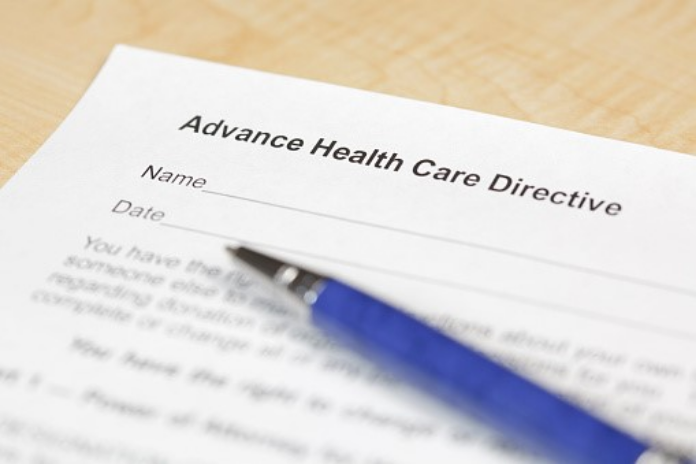
There may come a time where you suffer an injury or accident which impacts your ability to make and voice your decisions on medical treatments. If you want to make your preferences known on whether to accept or reject particular medical treatments on your behalf, then you may wish to consider having an Advance Health Directive in place.
What is an Advance Health Directive?
An Advance Health Directive is a document so that people know about your medical treatment preferences. An Advance Health Directive will only be operable when you lose capacity to make medical treatment decisions. Even with an Advance Health Care Directive in place, you will have the power to make decisions on your own medical treatment until you lose capacity.
An Advance Health Directive relates to two medical treatment considerations:
- Direct instructions on consenting or refusing particular medical treatment; and
- A general statement on your medical preferences and personal values. When there are no direct instructions as to whether you would have consented or refused the treatment, a statement of your preferences and values will assist your decision-maker in determining whether you would have wanted to accept the offered medical treatment.
If you do not have an Advance Health Directive or Enduring Power of Attorney in place at the time you lose capacity, then a person may make an application to the Queensland Civil and Administrative Tribunal to act as your statutory health attorney. There is a line of priority as to who can apply and there are some restrictions on the decisions they can make. If you want to ensure that a particular person makes medical decisions on your behalf, it is important that you have an Enduring Power of Attorney in place.
Who can make an Advance Health Directive?
Anyone over the age of 18 years old who has the capacity to understand how an Advance Health Directive operates may make one. The requirements for determining capacity are:
- you understand the effects of each direction you make in your Advance Health Directive;
- you understand the direction will only operate at the times you lose capacity to make decisions on your medical treatment;
- you understand you can revoke a direction at any time you have capacity and you cannot revoke a direction when you have lost capacity; and
- you are making the Advance Health Directive freely and not under the influence of someone else.
As it is difficult to foresee a sudden accident or illness, having an Advance Health Directive in place will bind your medical decision-maker and doctor. It will ensure they follow your treatment wishes if you have specific preferences on your medical treatment (particularly refusing treatment).
Signing the Directive
An Advance Health Directive has unique witnessing requirements. Your doctor will be required to sign the Advance Health Directive. Your doctor’s signature is required to acknowledge that your doctor has discussed and explained the form with you and that you had the mental capacity to make the Advance Health Directive.
Your signing of the Advance Health Directive must be witnessed by a qualified witness (Justice of the Peace, Commissioner for Declarations, a lawyer or a notary public). However, the qualified witness must not be someone who:
- you are appointing as your attorney to make medical decisions on your behalf;
- is related to you;
- is your paid carer or health provider; or
- is a beneficiary under your will.
Steps After Signing an Advance Health Directive
It is not a requirement to lodge your Advance Health Directive with any relevant authority. The only people who need to know about the Directive are those who may be impacted by it or need to make decisions on your behalf. Therefore, you should give a copy of your Advance Health Directive to:
- your doctor;
- your local hospital (especially if they already have a patient file for you);
- a health care provider;
- anyone you have appointed as an attorney to make medical decisions on your behalf;
- any attorney you have appointed under a Power of Attorney;
- your family and close friends; and
- your lawyer.
You should review your Advance Health Directive every couple of years to ensure your values have remained the same or whether you want to add any new medical treatments to it.
If you no longer want to have an Advance Health Directive in place (or a direction in your Advance Health Directive), then you may revoke it at any time you still have capacity. There is no form to complete for the revocation, however the notice must be in writing. You must take all reasonable steps to notify the attorneys you appointed that your Advance Health Directive has been revoked.
Future Considerations
In September 2021, the Queensland Government passed the Voluntary Assisted Dying Bill 2021 (Qld). If this bill becomes legislation, then there will need to be clarification on what happens when a direction under an Advance Health Directive conflicts with a person’s wishes. For example, if a person wishes to proceed with voluntary assisted dying, whether an attorney can make decisions on a person’s behalf to proceed with it.
If you have any questions or require assistance with drafting or updating your Advance Health Directive in Queensland, please contact the property team at NB Lawyers for more information.
Written By:

Kayleigh Swift, Director
NB Property Law
[email protected]
(07) 3876 5111
Kayleigh Swift is a Director of our Property team who showcases her expertise in Commercial and Residential property matters.. With a high level of experience in commercial and retail leasing, voluntary and involuntary purchase and sale acquisitions and property development matters, Kayleigh provides practical advice to ensure smooth property transactions.

